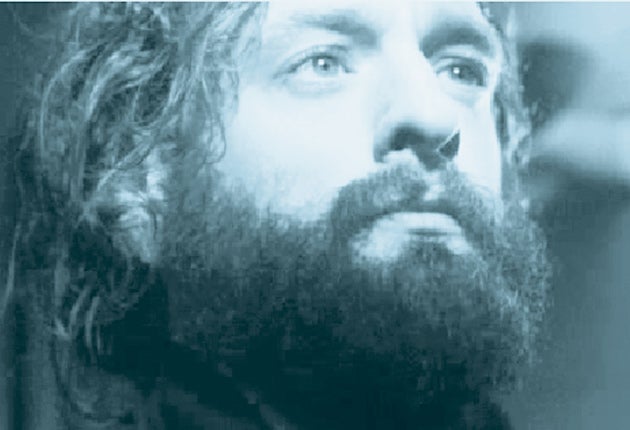Claire Beale on Advertising: Why the Redknapps make adland sick

Your support helps us to tell the story
From reproductive rights to climate change to Big Tech, The Independent is on the ground when the story is developing. Whether it's investigating the financials of Elon Musk's pro-Trump PAC or producing our latest documentary, 'The A Word', which shines a light on the American women fighting for reproductive rights, we know how important it is to parse out the facts from the messaging.
At such a critical moment in US history, we need reporters on the ground. Your donation allows us to keep sending journalists to speak to both sides of the story.
The Independent is trusted by Americans across the entire political spectrum. And unlike many other quality news outlets, we choose not to lock Americans out of our reporting and analysis with paywalls. We believe quality journalism should be available to everyone, paid for by those who can afford it.
Your support makes all the difference.It is, of course, fabulously ridiculous. The image of golden glossy Louise and buffed hubby Jamie Redknapp pouting and posing on a package holiday. And don't they drool on about it. "We dream aboudit. We fantasise aboudit. We chill ouw on it."
Fair enough, their package holiday is not like any you and I have ever been on. No check-in queues, disinterested tour reps wearing nylon, kids high on ice cream, cellulite and paunches on the sun loungers.
No, Jamie and Lou ride horses along the surf, play football barefoot in designer suits on deserted beaches, enjoy romantic dinners followed by energetic intercourse. But then this is packaged holidaying adland style.
And it's one of the cheesiest, cliché-riddled, toe-curling commercials on TV at the moment. The creative sophisticates of the ad world find it execrable. But adland has a problem. Because it turns out this ad works rather well.
It's part of a new campaign for Thomas Cook by the agency Beta. And for every adlander that's choked on their decaf skinny latte while watching this commercial, hundreds of real people have been handing their money over to Thomas Cook in dreamy anticipation of vacationing like the lovely Redknapps. Just as the ad industry's opprobrium for the campaign was in full flow, the national press was humming with headlines like "Thomas Cook Scores With Redknapp Factor" and "Jamie's Hol in One" after the travel firm's chief Manny Fontenla-Novoa credited the ad for a 15 per cent surge in sales.
There are echoes in this of a new report by TNS Research about the most effective ads of 2009. The research is based on how likely consumers are to buy a product after seeing the ad. Not one of the ad industry's most applauded campaigns made the top five.
In fact, only one – Alexsandr the meerkat for comparethemarket (and even that is sneered at by adland's creative snobs) – made the top ten. Apparently the most effective ad of last year was for Dettol Surface antibacterial spray, by Euro RSCG (an agency well outside the ad industry's creative elite). Next was the excruciating ad for Nintendo starring Ant and Dec.
So here's the thing: at a time when the country was gripped by panic over swine flu, Dettol's ad conveyed a simple message about killing germs. And people will notice an ad starring Ant and Dec, no matter how bad the script. And when the weather's cold and miserable, the thought of romping in the surf on golden beaches is extremely appealing. Why these ads worked is no mystery.
But the success of these campaigns gives the ad industry a bit of a problem. Lusty young graduates do not come into the ad business dreaming of making ads like those for Dettol or Thomas Cook (though admittedly celebs and exotic locations score pretty high on the industry's benefits scale).
What drives the ambitions of adlanders are awards and respect for work considered creatively excellent by their peers. Effectiveness is highly prized but it does not confer status and success on agencies in anything like the way creative trophies do.
Creative excellence, of course, is imperative to a flourishing ad industry: a highly creative ad is more likely to be enjoyed and remembered and acted upon by consumers than a bland, forgettable ad.
But as companies question the value they get from their advertising spend as never before and consider new ways of paying their ad agencies based on performance, the industry needs to get a healthier perspective on what exactly makes a good ad. Yes, the Thomas Cook ad is offensive when viewed through the skewed creative lens of the ad sophisticate.
As my normal friend said when I asked her what she thought about it: "It makes me want to book a holiday." Job done.
Best in show: French Connection (Fallon)
So will the new ad campaign for French Connection sell more clothes? It certainly helps create some new cool credentials for the beleaguered brand caught in the bland middle ground of the high-street fashion market. As bright as FCUK blazed for a time, the retailer has long since lost any clear sense of identity and positioning. I'm not sure the new campaign by Fallon is enough to overcome some of French Connection's fundamental business problems – and the last time I looked its clothes were simply indifferent – but this is a slick campaign that refreshes the French Connection image. It's all black and white insouciance with a lovely wry twist. And I'm digging that beard.
Join our commenting forum
Join thought-provoking conversations, follow other Independent readers and see their replies
Comments